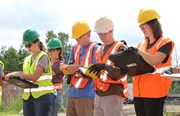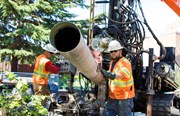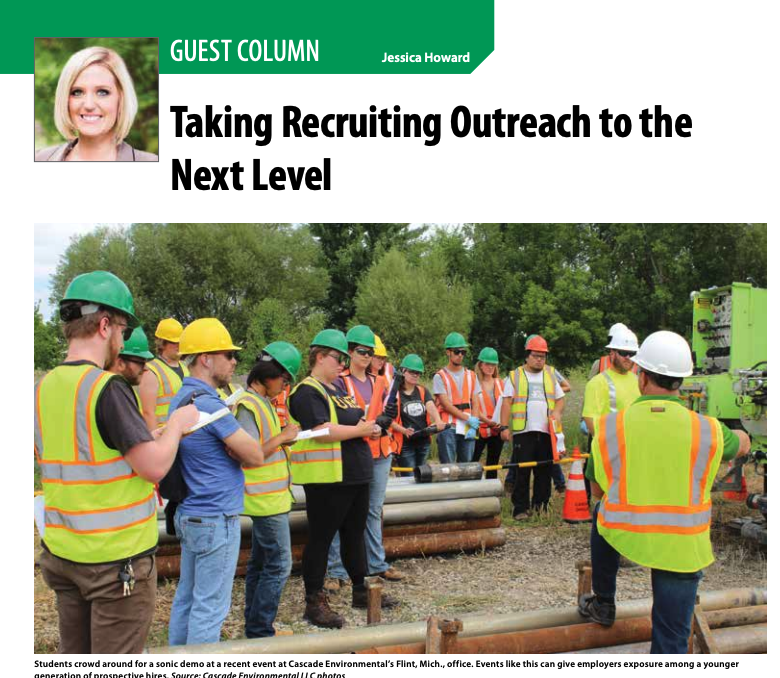The Secret to Hiring During (and After) COVID-19: Appealing to Candidate Needs
By: Jessica AlexanderWe’re all aware the hiring environment has changed tremendously in the past eight months, mainly due to the COVID pandemic. Many employers in environmental services now find themselves struggling to attract and hire new employees, despite high unemployment. This is largely due to the unenviable choice potential candidates face: deciding whether to take a job that may expose them to COVID-19, or pass and try to find a way to cover their bills without a paycheck.
Meanwhile, our industry is facing increased changes in project timelines, making it more imperative we forecast staffing needs appropriately. To address this challenge, organizational leaders must consider their candidates’ needs, both during and after this pandemic, and how they can better meet them.
NEED FOR SAFETY
One of the most obvious needs of current job candidates is to feel safe in their workspace. For many, this means the ability to work in a socially distanced environment or to work from home. While it isn’t possible for every role, leaders have to consider the possibility of remote or work-from-home arrangements wherever possible. For field services positions in which remote work isn’t feasible, leaders must take all precautions to protect from COVID exposure—and make it clear to both current and prospective employees that their health and safety is the absolute priority.
NEED FOR TRANSPARENCY
That leads us to a second need—more than ever, candidates are looking for honest and transparent communication. Many of them have experienced mass layoffs and furloughs related to the pandemic, and if they’re considering joining your company, they want to know you’ll communicate any challenges or possible issues that would affect their future employment. Be honest about any potential for future layoffs or furloughs—yes, even during the interview process—and have open discussions with potential candidates about how COVID has affected the company’s financial performance and future projections.
NEED FOR PERSONAL WELL-BEING
We’re living in unprecedented times, and employees need to feel supported during this national crisis. To attract candidates, develop a recruiting strategy that highlights your organization’s commitment to all employees’ physical, mental and emotional well-being. This could be something as simple as highlighting different resources that are available to employees, such as medical coverage or employee assistance programs.
NEED FOR SECURITY
The COVID pandemic has impacted all companies one way or another, and many employees may no longer feel as secure in their position as they did before the pandemic. Some organizations may even be on the brink of massive downsizing, acquisitions or even bankruptcy. There is also the potential that decreased profits during the pandemic have caused some organizations to reconsider their structure and possibly eliminate certain positions. Employees at these companies may not have been looking to change jobs a year ago, but may feel differently today. Don’t assume that someone isn’t interested in making a change just because unemployment is high. Reach out and make the connection and effort if your organization has a need and the ability to hire.
NEED FOR GROWTH
Lastly, to attract more employees into the environmental field services industry, organizations have to continuously show the career progression that is available to entry level employees. Candidates want a job, but they also want to know they can grow with your company. Map out how an employee’s career can advance and be clear about the average timelines for advancement. Share testimonials or success stories from current employees with potential candidates, and let them know mentorship is available.
The needs of your job candidates always matter, but they are almost certainly different during the current pandemic. It’s time to tailor your recruitment process accordingly. Be understanding if a candidate would prefer a telephone or video interview versus coming into the office. Consider including a brochure in your recruitment collateral that highlights what your organization is doing to protect employees against COVID. When interviewing, be empathetic to those employees that may have lost their previous job due to the pandemic or were forced to stay home to take care of an elderly parent or child.
By understanding and addressing job candidates’ needs, you’ll be positioned to recruit top candidates—and be their first choice when an offer is made.
If you have questions, reach out to our Director of Talent Acquisition, Jessica Alexander, at [email protected].






